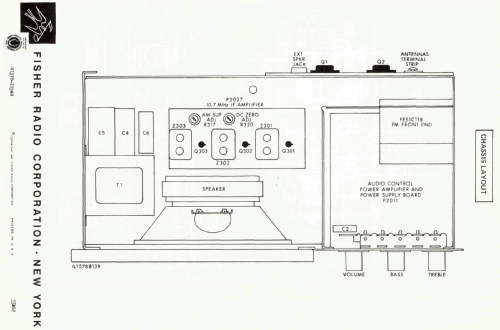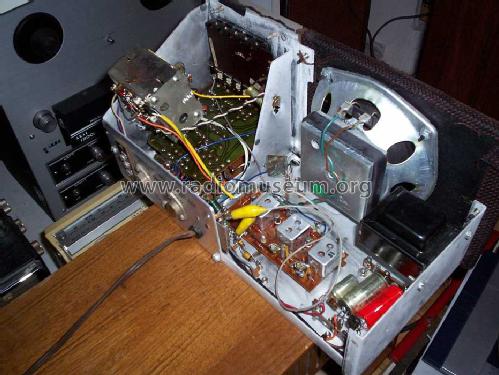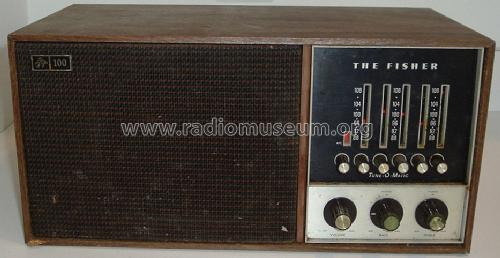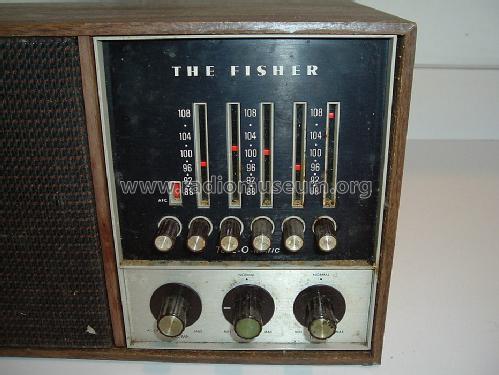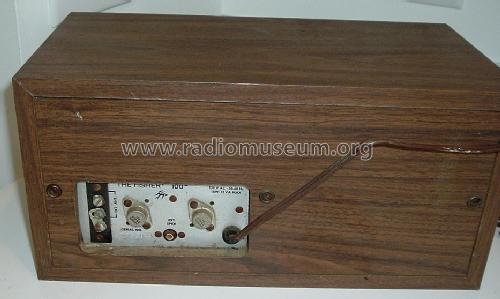- País
- Estados Unidos
- Fabricante / Marca
- Fisher Radio; New York (NY)
- Año
- 1970 ??
- Categoría
- Radio - o Sintonizador pasado WW2
- Radiomuseum.org ID
- 128097
Haga clic en la miniatura esquemática para solicitarlo como documento gratuito.
- Numero de transistores
- Hay semiconductores.
- Semiconductores
- Principio principal
- Superheterodino en general
- Gama de ondas
- Solamente FM
- Tensión de funcionamiento
- Red: Corriente alterna (CA, Inglés = AC) / 120 Volt
- Altavoz
- Altavoz dinámico (de imán permanente)
- Material
- Madera
- de Radiomuseum.org
- Modelo: 100 - Fisher Radio; New York NY
- Forma
- Sobremesa de tamaño mediano sin botonera <= 35 cm. (Incluso portables pero sólo con alimantación por red).
- Anotaciones
- 5 tunable push-buttons, AFC, ext. speaker RCA jack.
- Procedencia de los datos
- -- Collector info (Sammler)
- Autor
- Modelo creado por un miembro de A. Ver en "Modificar Ficha" los participantes posteriores.
- Otros modelos
-
Donde encontrará 592 modelos, 504 con imágenes y 204 con esquemas.
Ir al listado general de Fisher Radio; New York (NY)
Colecciones
El modelo 100 es parte de las colecciones de los siguientes miembros.
Contribuciones en el Foro acerca de este modelo: Fisher Radio; New: 100
Hilos: 2 | Mensajes: 11
good morning all.
i just received a fisher 100 microreceiver (small tabletop radio) with two exposed transistors mounted in the back, where they're accessible without removing the case -- an amperex 2N4077 and a 2N4078 "Germanium" transistors. they have twin prongs that plug into the back of the unit). i've lost my bass and treble controls. i don't have a schematic. i'm hoping that replacing these transistors might solve my tone-control problem. i'm getting plenty of good sound out of the speakers, even with these transistors unplugged. i'm getting no continuity between the prongs of both transistors. i just got this very impressive radio and am trying to determine what has happened to the tone controls. i thought they worked when i received the radio, and i'm troubled that they've gone out so fast. can anyone please help?
thanks very much.
--charles jones
Charles Jones, 16.Oct.08
Also known as the Fisher Microreceiver 100.
Charles Jones, 15.Oct.08
